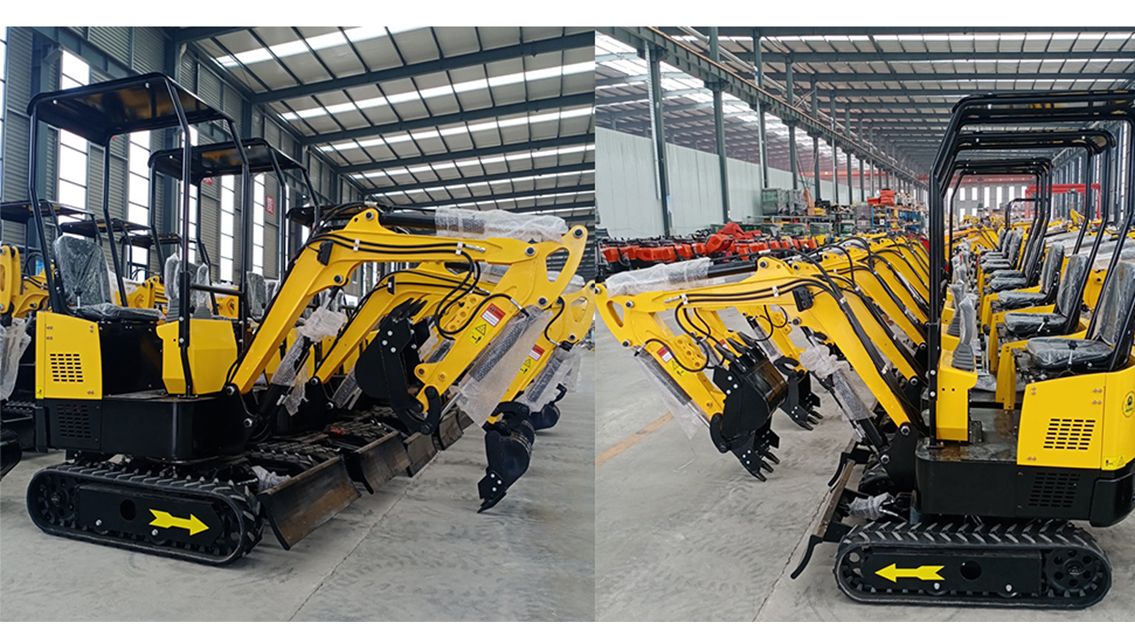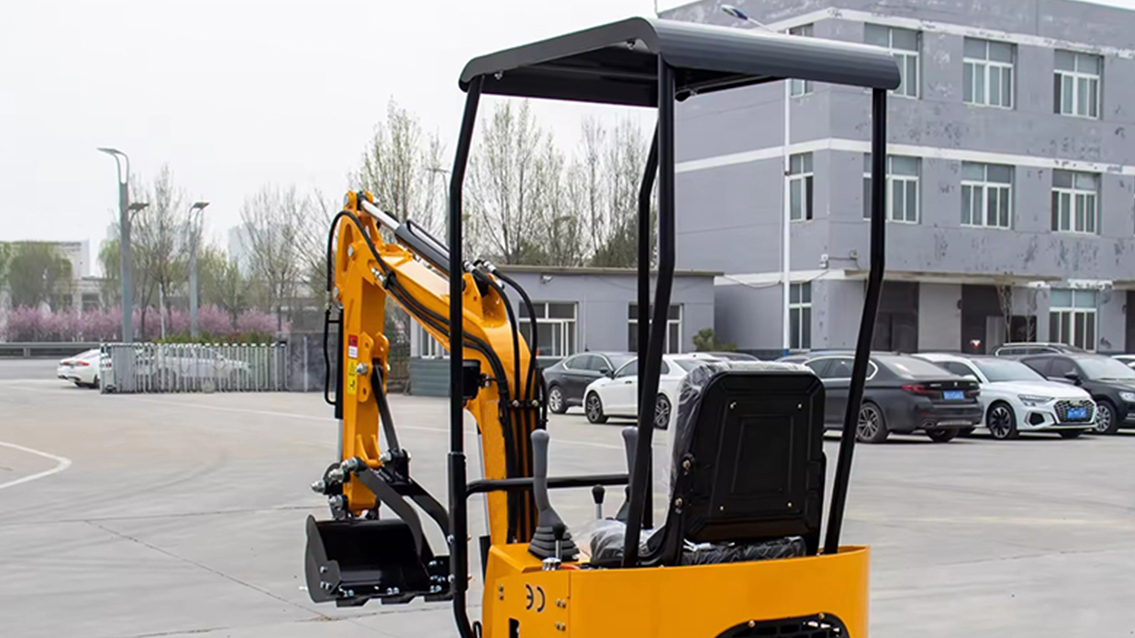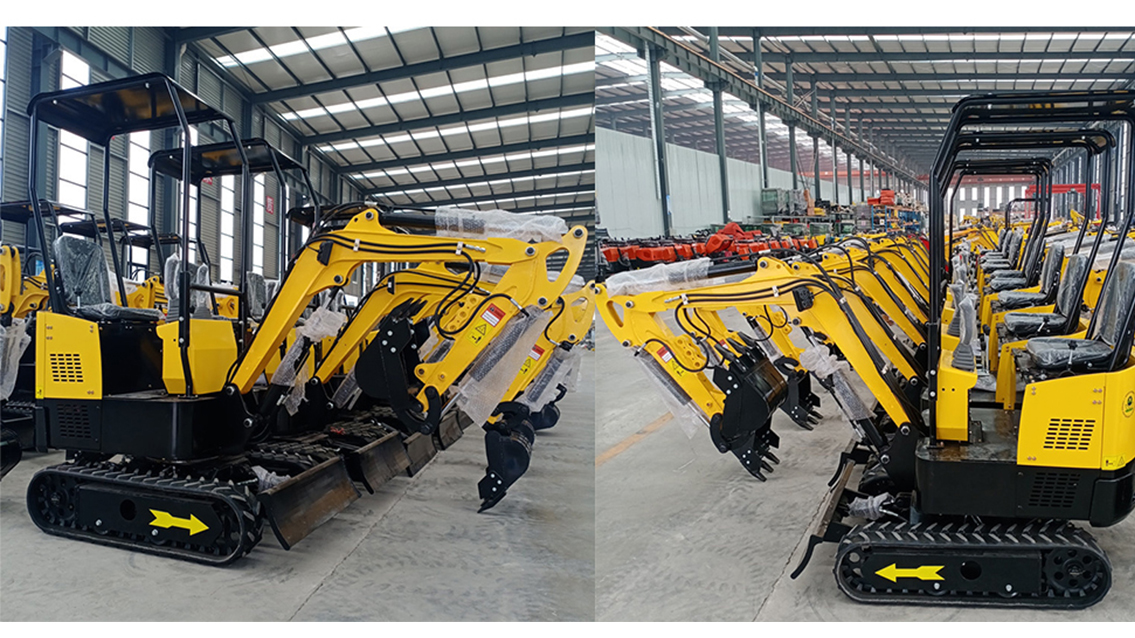Introduction
Mini excavators have become indispensable tools in construction, landscaping, and various other industries due to their versatility and compact size. However, with growing environmental concerns and increasing regulations on emissions, there's a surge in demand for sustainable equipment. Electric mini excavators are emerging as a promising alternative, offering a cleaner and quieter operation. This article aims to explore the availability of electric mini excavators and delve into the numerous benefits they provide, shedding light on their potential to revolutionize the industry.
II. Availability of Electric Mini Excavators
Market Overview:
The market for electric mini excavators is expanding, with several manufacturers now offering viable models.
Companies like Volvo, Wacker Neuson, and Kobelco are leading the charge, providing options for various applications.
Availability varies by region, with Europe and North America seeing the most significant adoption.
Technological Advancements:
Significant advancements in lithium-ion battery technology have made electric mini excavators more feasible.
Improved electric powertrains offer comparable performance to diesel engines, with better efficiency.
Rapid charging technologies are also enhancing the practicality of these machines.
Industry Adoption:
Construction companies and municipalities are increasingly adopting electric mini excavators for urban projects.
Landscaping and indoor demolition companies are also recognizing the benefits of zero-emission equipment.
Government initiatives and incentives are driving further adoption.
III. Core Benefits of Electric Mini Excavators
Environmental Advantages:
Electric mini excavators produce zero emissions, reducing the carbon footprint of construction projects.
They significantly reduce noise pollution, making them ideal for urban and residential areas.
They lower reliance on fossil fuels, contributing to a more sustainable future.
Operational Benefits:
Lower operating costs due to reduced energy consumption and minimal maintenance.
Improved efficiency in confined spaces, as there are no exhaust fumes to vent.
Enhanced operator comfort with reduced noise and vibration.
Regulatory Compliance:
Electric mini excavators help companies comply with increasingly stringent emissions regulations.
They may qualify for government incentives and subsidies, reducing the overall cost.
Health and Safety:
Improved air quality for workers, especially in enclosed environments.
Reduced risk of fire hazards compared to diesel-powered machines.
IV. Performance and Capabilities
Battery Technology and Runtime:
Modern lithium-ion batteries provide sufficient power for typical mini excavator operations.
Operating times vary depending on the model and application, but advancements are continually extending runtime.
Charging infrastructure is improving, with options for fast charging and on-site charging solutions.
Power and Performance:
Electric mini excavators offer comparable power and torque to diesel models.
They provide instant torque, resulting in responsive and precise control.
They are suitable for various applications, including digging, lifting, and grading.
Maintenance and Reliability:
Electric machines require less maintenance than diesel models, reducing downtime and costs.
Electric components are generally durable and reliable.
Parts and service availability is expanding as the market grows.
V. Cost Analysis and ROI
Initial Purchase Price:
Electric mini excavators typically have a higher initial purchase price than diesel models.
However, this cost is offset by lower operating and maintenance expenses.
Operating Costs:
Energy consumption is significantly lower than fuel costs for diesel machines.
Reduced maintenance and repair expenses contribute to long-term cost savings.
Return on Investment (ROI):
ROI calculations demonstrate that electric mini excavators can provide significant cost savings over their lifespan.
Payback periods are becoming shorter as battery technology improves and operating costs rise for diesel machines.
VI. Practical Applications and Use Cases
Urban Construction and Demolition:
Ideal for noise-sensitive and emission-restricted urban environments.
Suitable for indoor demolition and renovation projects.
Landscaping and Gardening:
Minimizes disturbance in residential areas and parks.
Reduces environmental impact in sensitive areas.
Utility Work and Infrastructure Maintenance:
Provides safe and efficient operation in confined spaces and underground work.
Improves worker safety in enclosed areas.
Agriculture and Forestry:
Suitable for environmentally sensitive areas, reducing soil and wildlife impact.
VII. Challenges and Limitations
Battery Range and Charging Infrastructure:
Limited operating time compared to diesel models can be a challenge in some applications.
Charging infrastructure may not be readily available in all locations.
Initial Cost and Availability:
Higher upfront costs can be a barrier for some businesses.
Availability of specific models may be limited in certain regions.
Performance in Extreme Conditions:
Extreme temperatures can affect battery performance.
Heavy-duty applications may require longer operating times than current battery technology allows.
Technological Maturity:
Although advancing rapidly, the technology is still developing.
VIII. Future Trends and Developments
Advancements in Battery Technology:
Increased energy density and faster charging will extend operating times and improve efficiency.
Improved battery durability will further reduce long-term costs.
Expansion of Charging Infrastructure:
Mobile charging solutions will increase flexibility.
Integration of renewable energy sources will enhance sustainability.
Increased Adoption and Market Growth:
Growing demand for sustainable construction equipment will drive market growth.
Government incentives and regulations will accelerate adoption.
IX. Case Studies and Real-World Examples
Detailed examples of projects using electric mini excavators, showcasing performance and cost savings.
Operator feedback and experiences, highlighting the benefits of electric machines.
Analysis of the impact on project timelines and budgets.
X. Conclusion
Electric mini excavators are a viable and beneficial alternative to traditional diesel models, offering significant environmental and operational advantages. As technology advances and infrastructure improves, their adoption will continue to grow. Businesses considering electric mini excavators should carefully evaluate their specific needs and the available options to determine the best fit for their operations. The future of construction equipment is increasingly electric, and electric mini excavators are at the forefront of this transformation.
Post time:Sep-25-2020



